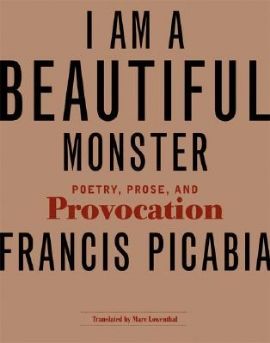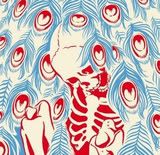
Shane Jones’ ‘Light Boxes’ (Penguin Books 2010) is an epic told in 147 pages of surreal pleasure, fluid with lucid imagery & deft poetry. It has a gravitational charisma, being especially light & playful in its content, while its darker material also carries a charm of its own. You can fit the chapters in your mouth like flakes of snow & when they dissolve they will have a hallucinogenic effect similar to acid – y’know, if you believe in the transcendent power of words & all. I promise, your heart will be frozen & your heart will be unfrozen, all within one easy reading. Even in scanning the book for this review, I am tempted to reread the entirety of it, & probably shall, but being as it’s the first of February, I want to talk about this. right. now. If you only read one book per month, make this the one, ‘cause Hey! it’s February. Go out & find this book.
“A scroll of parchment was nailed to an oak tree, calling for the end of all things that could fly. Everyone in town gathered around to read it. Trumpets moaned from the woods. Birds dropped from branches. The priests walked through town swinging axes. Bianca clutched Thaddeus’ leg, and he picked her up under the arms and told her to hold him like a baby tree around the neck, and Thaddeus ran.”
The story that takes shape is dreamlike without being vague & surreal without being abstract: the first snowfall of February also brings an order from a mysterious spirit, named February, banning all flight in a community of hot-balloon enthusiasts. The townspeople are cast into unending cold & darkness as February settles in permanently. Children disappear. Spirits fail. Sky-gazers die. And so, prompted by a group of ex-balloonists whom wear colored bird masks, the people launch a war against February.
“In the crop field, four people are found standing with their heads tilted back and arms frozen to their sides. Eyes closed, their mouths stretched open and filled with snow.”
02/02/2011 | Categories: February Forever, fiction, Shane Jones | Leave a comment
“When Gregor Samsa awoke one morning from troubled dreams he found himself transformed in his bed into a monstrous insect.”
I never metamorphosis I didn’t like, until I read of Gregor Samsa’s tragic transformation in Franz Kafka’s “Metamorphosis” (1915). As it goes, Gregor is changed into a cockroach, the most vile & hated lower-form of insect there is; but because the focus of the story is not on the why & wherefore of this dreadful change but on Gregor’s family & relation to, it’s an elementary step to deduce that the aforementioned metamorphosis is a profound metaphor for … well, many things… let’s dive into the suggested themes therein.
After a night of anxious dreams – which already tells us that there is unconscious tension in his life – Gregor awakes to find that the state of his life is something he cannot recognize; it’s grotesque to him, for certain, but his chief concern is that he is unfit to make it to work & hardly able to roll out of bed. For years, leading up to this fateful morning, Gregor has worked as a traveling salesman & has taken up the position as the sole bread-winner of his family. He has the spirit of a man, begrudgingly, working his way out of some bondage or other but honors his responsibilities to his family as an insect does to its colony, with tireless selflessness. Despite his loyalty to his family, this situation has led Gregor to be somewhat estranged from them; except for his relationship with his sister, Grete, to whom Gregor invests his total enthusiasm, there are obvious underlying tensions in his relationships with his mother & particularly his father. Gregor’s metamorphosis has been years in the making, but on the morning in question, Gregor does not question how he has come to be in this shape – he knows it, he feels it – but it is his own family that cannot believe their eyes. Is it not common for a man to be astounded by himself when he realizes he has changed from one life-form to another? If it is a sudden transformation, then surely, but if it has taken years to evolve into that form, he hardly notices, though he may recognize, at once upon some blurry-eyed morning, that he has, at last, become something else entirely than what he use to hope for & his acceptance of his gross embodiment can lay a debilitating tax on his spirit, taking from him the ability to do anything for himself or for anyone any longer – as is the case with Mr. Gregor Samsa.
(more…)
11/06/2010 | Categories: fiction, Franz Kafka, Metamorphosis, review | Leave a comment
You are a being of infinite dimensions, so: learn to dance & develop a sense of humor. Trim the waste from your soul & be light, for the unbearable heaviness you carry is only what you choose to identify yourself with and eventually it will lead to your existential despair. Cultivate your laughter to match that of the immortals. And, if you haven’t a place to sit among those whom dine in the halls of honors & false graces then return to your true home, within, outside of time, & feast on eternity.

Do you feel split in two, as if your life were the battle ground of two horrible warring beasts? Do you hear the duality in your own thoughts? Are you unable to decisively attach yourself to “this” or “that” nor find a balance in-between? Are you struggling to take control of your shifting hungers & find some certainty of your innocence as a human being? Are there more entities than two in your head? Hundreds? Thousands?! Who, then, are these fragments that speak through you? Who is the you that recognizes (or cannot recognize) the identity of these shadows? If these questions echo within you & you’re interested in finding concrete answers, you should be reading Herman Hesse’s “Steppenwolf” (1927).
“As a body everyone is single, as a soul never.”
There is the man, the sleek thinking machine whom admires his own reflection, praises his own charitable hand, & separates himself from every thing he sees with the magical justification of logic: “that person is not my person, that thing is not me.” But the man is not alone in himself, he senses all his efforts subjugated by some darkness within himself. The man turns the lens of scientific introspection on his own psychologies & finds an opposing entity: all that is wretched, vicious, & cunning in his nature wears the hide of a wolf from the steppes. This man cannot divide himself from his wolf because the wolf has no desire to divide itself from this man. The man builds his entire life around the dueling identities within, and submits his expressions to the contradictory natures that share the space of his spirit & wrestle for domination. He has surrendered his peace for a personal war. Here is the essence of your ‘Steppenwolf’ & here is the essence of our protagonist, Harry Haller.
(more…)
10/28/2010 | Categories: fiction, Herman Hesse, Steppenwolf | Leave a comment







